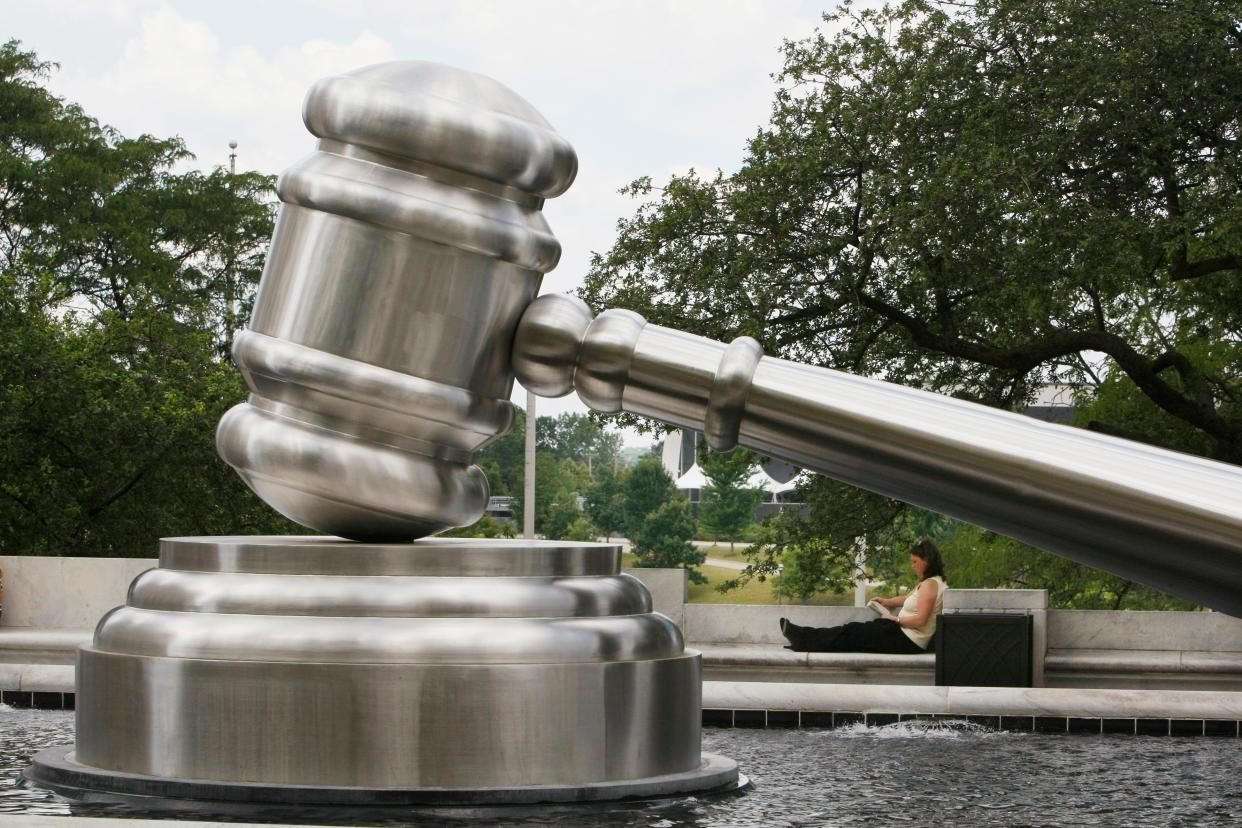Ohio Supreme Court rules taxi driver convicted in passenger's shooting will get new trial

The Ohio Supreme Court on Thursday morning granted a new trial for a taxicab driver convicted of shooting and wounding a passenger in Clermont County.
In a 4-3 decision, the court found that the jury in Phillip Palmer’s trial should’ve been allowed to consider whether Palmer acted in self-defense when he shot Nicholas Young, then 38, in the neck after an argument over cab fare.
A Clermont County jury in May 2021 found Palmer, now 75, guilty of a felonious assault and acquitted him of an attempted murder charge.
Young was attending a holiday party in December 2019 when he passed out at the Jack Casino in downtown Cincinnati, was escorted from the building and placed in a cab driven by Palmer, according to the court’s ruling.
Witnesses testified that Young was “heavily intoxicated,” the document says, and Palmer was unable to decipher much of what Young was saying, other than the man wanted to go to Moscow, Ohio, though the driver wasn’t given an exact address.
Young fell asleep in the cab and when Palmer saw a road sign for Moscow, he called out twice to Young, who didn’t respond. It wasn’t until Palmer saw a sign for Ripley, Ohio, that he stopped the cab to rouse his passenger.
Young was upset that Palmer had driven past his destination and demanded to be taken to a gas station in Moscow, the document says, adding the fare was over $100.
Once at the gas station, Young refused to pay the cab fare and went inside the store, where Palmer overheard him offer someone $20 to drive him home. A heated argument ensued and Young twice shoved Palmer, who hit a glass door the second time.
Palmer went back to his vehicle to call the police when Young, who testified he forgot his phone, approached the cab, the document says. That’s when Palmer, claiming he was scared for his life, pulled a gun and fired on Young.
He then exited the cab, fired another round at the ground near Young and drove away. Young was taken to a local hospital and survived his injuries.
Palmer said at trial that he started carrying a gun in 2018 when he heard of another taxi driver who had been shot by a passenger, adding he rarely drove at night out of fear. During his time as a cab driver, Palmer said, he had been shot at, attacked and robbed.
He admitted in court to shooting Young but claimed he acted in self-defense.
The trial court judge denied Palmer’s request to instruct the jury on self-defense, saying in part they disagreed “that a reasonable person would believe that they were in danger of being killed by Mr. Young under that situation,” according to the ruling.
In writing for the majority, Chief Justice Sharon Kennedy said the trial court judge overstepped by improperly weighing Palmer’s evidence of self-defense and considering whether it was credible and convincing.
“When determining whether to provide a self-defense jury instruction, it is not the trial court’s duty to determine whether the defendant presented persuasive evidence to support the elements of self-defense,” the chief justice added.
Kennedy was joined in her opinion by Justices Michael Donnelly, Melody Stewart and Jennifer Brunner, who all found the evidence produced by Palmer was “legally sufficient” to instruct jurors on self-defense.
Justice Patrick DeWine, joined by Justices Joe Deters and Patrick Fischer, wrote a dissenting opinion saying the majority’s ruling ignores well-established discretion afforded to trial court judges in gauging evidence to determine if a jury instruction is appropriate.
The justice also noted a lack of evidence showing that Young would likely have killed Palmer, or otherwise inflicted serious bodily harm, the standard for using deadly force in self-defense.
“There may have been sufficient evidence that Palmer was subjectively in fear,” DeWine wrote. “But there was not sufficient evidence that it was objectively reasonable for Palmer to believe that he was in imminent danger of death and that the use of deadly force was necessary to protect himself.”
The court’s decision reversed a ruling by the 12th District Court of Appeals, which upheld the trial court’s decision, and remanded the case back to Clermont County Common Pleas Court for a new trial on the felonious assault charge.
“I’ve had the great pleasure today of speaking with Phillip, as well as with his fiancé, a number of his friends and associates, and with all of the other attorneys who have worked tirelessly on his behalf over the past four-plus years,” John Hill, an attorney who represented Palmer in his appeal, said in a statement Thursday. “To say that we are all beyond ecstatic with this morning’s ruling from the Ohio Supreme Court is an understatement, and we look forward to seeing Phillip finally vindicated in a court of law.”
This article originally appeared on Cincinnati Enquirer: Ohio Supreme Court: Taxi driver gets new trial in passenger's shooting

